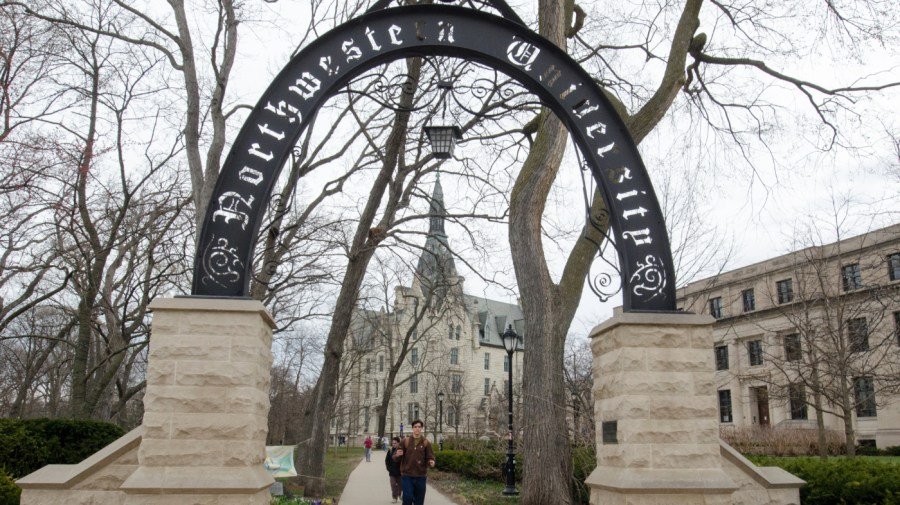
When President Trump began his assault on higher education, freezing well over a billion dollars in research funding at leading universities, he implausibly claimed to be responding to campus antisemitism — some of which was real, although much was exaggerated or imagined.
In either case, many universities took proactive steps to address the issue, in hopes of restoring crucial grants.
At Northwestern University, where I am an emeritus professor, a mandatory anti-bias training program now requires students to watch video presentations on antisemitism and Islamophobia. The module on antisemitism has some students up in arms, declaring that they will risk suspension from the university rather than subject themselves to a 17-minute video titled “Antisemitism Here-Now.”
The video lacks a certain nuance, which has helped fuel the controversy, but it is still no cause for alarmism. One student called it “propaganda that justifies the Israeli Zionist occupation project.” Others complained that it “equates criticism of Israel with antisemitism.” Neither charge is accurate.
It is impossible to address antisemitism without discussing Israel, which is constantly the target of both legitimate and bigoted denunciations. Northwestern’s antisemitism module, produced by Chicago’s Jewish United Fund, includes a three-minute segment titled “What about Israel?” It does not equate Israel criticism with antisemitism.
As the module clearly explains, “Democracies thrive under critique [and] Israel criticism is fine, as long as it’s not based on conspiracy theories about Jews, distortions of history, or antisemitic tropes.”
It concludes that “It is not antisemitic to criticize the policies, practices, or members of the Israeli government. Unless that criticism relies on antisemitic tropes.”
Is there any doubt that some accusations against Israel are antisemitic?
Conspiracy tropes are common even among otherwise responsible people. In 2021, for example, an elected member of the Virginia House of Delegates tweeted that Israel was responsible for the Iran-Iraq War that “killed MILLIONS of Iraqis and Iranians.” In another tweet, he said “Mossad creates fossil fuel wars.”
Likewise, in 2022, a professor at Denver University opined that “a Mossad operative” was likely to have been behind the stabbing attack on Salman Rushdie. A man named Hadi Matar, who praised Iran’s Revolutionary Guard and Hezbollah, has been convicted of that attempted murder. There was never a link to Israel.
Then there is Tucker Carlson, who has updated the notorious “Protocols of the Elders of Zion,” encouraging those who connect Israel to the assassination of Charlie Kirk.
Northwestern’s antisemitism video does become tendentious at points. It includes a gratuitously inflammatory comparison of statements from anti-Israel activists to those of Grand Dragon David Duke. Some may also object to the assertion that it is antisemitic to call for the destruction of Israel, a characterization with which most of the world’s Jews agree.
Critics of the training engage in their own tendentious half-truths. The video does not, as reported in the Guardian and alleged in an open letter from students and others, substitute “Judea” and “Samaria” for “West Bank.” The hand drawn map clearly identifies today’s West Bank, with the biblical terms Judea and Samaria in smaller print and parentheses.
The protesters’ central complaint is that the training video fails to recognize “the pain, suffering, and existence of the Palestinian people.” That would be meaningful critique if the module had been a history of Israel and Palestine, but that’s not what it is. It is an odd objection to a video about antisemitism, suggesting that Israel’s well-documented offenses against Palestinians somehow justify the use of classically antisemitic tropes.
The 15-minute module on Islamophobia, titled “Beyond the Headlines: Anti-Muslim, Anti-Arab, and Anti-Palestinian Biases,” could also be criticized for similar omissions, but that would be equally misplaced, considering it is an anti-bias video.
Northwestern’s antisemitism module does not, as one graduate student declared, make it “impossible to structurally critique Israel.” Nor could it conceivably violate free speech and academic freedom, as baselessly asserted by the Middle East Studies Association.
If it were up to me, there would probably be no mandatory anti-bias training at all, given the potential for resentment along with any enlightenment. In this instance, however, Northwestern, as with many other universities, is a victim of Trump’s unrelenting campaign, without much choice in the matter.
Although Northwestern students must spend 32 minutes watching both the antisemitism and Islamophobia videos as a condition of registration, they are not asked to endorse or agree with either one.
With $790 million in research funding hanging in the balance, that seems little enough to ask.
Steven Lubet is the Williams Memorial Professor Emeritus at the Northwestern University Pritzker School of Law.


